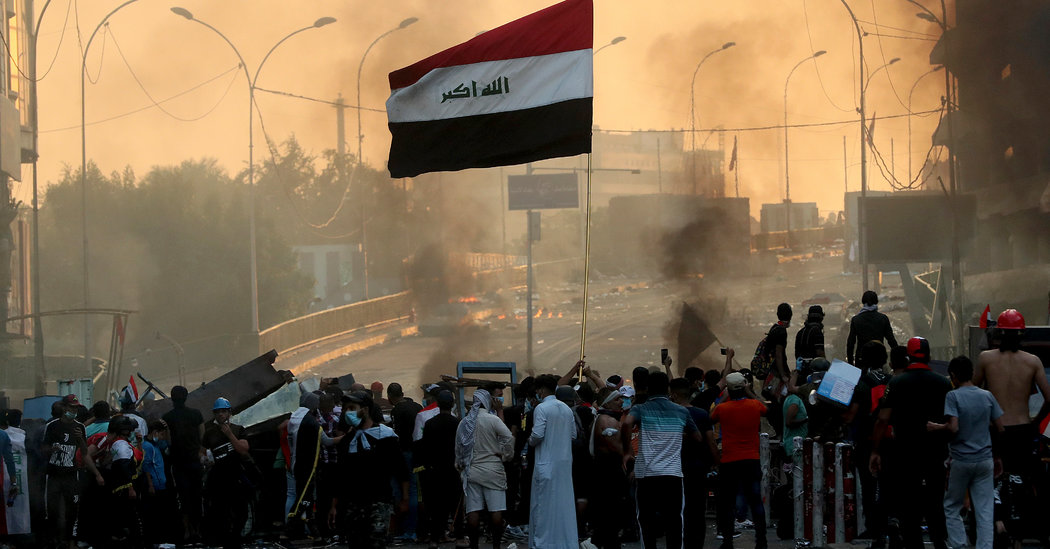
“Now Adil Mehdi feels bolstered; he’s encouraged to stay,” Mr. Shahbendar said. “Who would he resign for? It would be chaos if he resigned.”
It remains unclear whether Mr. Mehdi is up to the job of charting a course to resolve the demonstrations constructively. The security force pushback on Saturday night appeared designed to shrink the demonstrations, but without offering protesters a reason to retreat, it seemed more likely to strengthen antagonism toward the government.
“From the protesters’ point of view, it is a now-or-never situation,” said Abbas Kadhim, who leads the Atlantic Council’s Iraqi Initiative. “They have invested so much — so much in lives and injuries — and they are afraid if they go home, they will get nothing.”
The government, for its part, wants the country to remain functional. It has already lost millions of dollars because of the protesters’ closing of the port at Um Qasr, which ships much of Iraq’s crude oil.
“The only way for it to end is for the government to be creative and give the demonstrators something they can go home with, and they also need to bring in a third party to be the guarantor of the agreement,” Mr. Kadhim said.
But with every person killed, it gets harder to bridge the gap.
“As much as they try to oppress us, we are just as determined to resist them,” said Mohammed Qassim Mohammed, 25, an engineering student who was protesting near a bridge in Baghdad that the security forces retook on Saturday.
One of those killed was a friend his age, he said.
“Is this acceptable to the government or the international community that a 25-year-old man would be killed asking for his rights?” he asked, adding, “I have decided from today that even if all the protesters return home, I will not return until I get my rights and the rights for my friend.”
